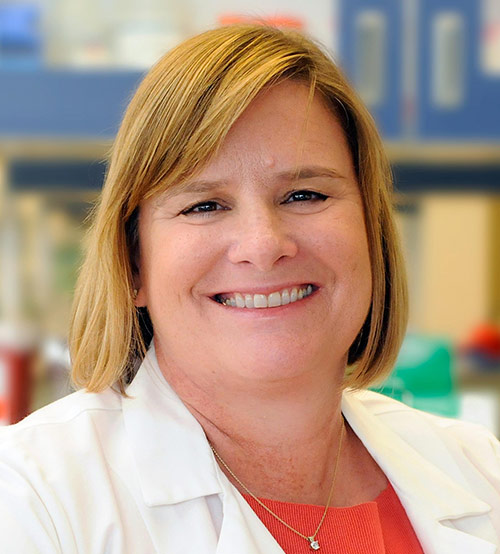The First Recipient of the BIO Rosalind Franklin Award
INDUSTRIAL BIOTECHNOLOGY: Dr. Yaver, congratulations on being the first recipient of the BIO Rosalind Franklin Award. With Dr. Franklin in mind, and all of the women scientists in the world today who have been inspired by her work, do you think women have reached the same level of acceptance and recognition as their male counterparts in what have traditionally been male-dominated fields such as chemistry, biochemistry, and chemical engineering? If so, where have you seen the greatest changes? And if not, what do we need to do better?
DEBBIE YAVER: Have women reached the same level of acceptance and recognition? I would say, “No.” It has come a long way, however, but it is not at the same level. If you look at the fields of chemistry, biochemistry, and chemical engineering, and for instance at the awards given or the make-up of the faculty in universities across the United States and in other countries, there is no doubt that these are still male-dominated fields.
Interestingly, I was reading an article about a recent research study in which they looked at the teacher evaluations given by university students who had done work with professors online. The students were told that the professors were either male or female. Sometimes the same professor was represented as a male and other times the students were told that professor was a female. Statistically, the female professors were rated lower than the males. Even when the students were rating the “same” professor, the rating was typically lower if they thought the professor was a woman.
I think some inherent bias still exists, and until there are more female role models in those traditionally male-dominated fields, and more women given recognition, I believe women won't reach the same levels of acceptance and recognition.
On the flip side, there certainly have been a lot of changes. You are seeing more women leaders in these male-dominated fields. I have seen it over the years when I go to the university, for example. There are more women graduate students, and more universities are putting women in leadership roles in these more male-dominated fields. There is growing recognition that a gap remains, and there is a movement to try and close that gap.
I honestly believe that it might take another whole generation to do so. We do not just need women being put in leadership roles and receiving awards. There also has to be a change in perception reaching all the way down to graduate and undergraduate students. A change in mindset, so that eventually gender should be a non-issue. Acceptance and recognition should be based on the scope, breadth, and quality of one's work; but we're clearly not there yet. Part of the reason is that girls and young women who have the aptitude and skills to excel in these areas still are being “turned off” of science and math. That will have to change at some point.
I know some young women and young minority women who are majoring in and pursuing graduate work in these fields, and they are doing quite well. They are doing what they love and have a passion for and they are not letting anything get in their way.
It is important for women to have the support and mentoring of men in the field. From my own experience, 90-plus percent of my mentors and the people who have helped me along in my career have been men. And this will be the case for a while until there are more women in leadership positions.
Attitudes in the home also play a role–having parents that not only support you, but also are gender-neutral and open-minded and help seek out female role models for young girls who are interested in science.
To read the rest of the article, CLICK HERE.

Debbie S. Yaver, Director of Expression Technology, Genomics, and Bioinformatics at Novozymes in Davis, CA
Industrial Biotechnology, published by Mary Ann Liebert, Inc., is a peer-reviewed bimonthly research journal focused on biobased industrial and environmental products and processes. The above article was first published in the February 2015 issue of Industrial Biotechnology with the title “A Conversation with Debbie S. Yaver, PhD”. The views expressed here are those of the authors and are not necessarily those of Industrial Biotechnology journal, Mary Ann Liebert, Inc., publishers, or their affiliates. No endorsement of any entity or technology is implied.



